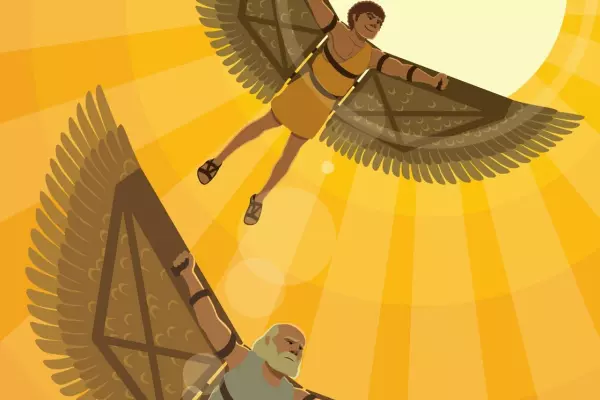In November 2019 citizen Jason Simmons petitioned Parliament, asking that the house of representatives amend the Goods and Services Tax Act 1985 to reduce the rate of GST to 10 percent.
“I believe this would put the tax rate in line with the rate required to be balanced for all incomes and would help people keep up with the cost of living,” Simmons said.
His petition got four endorsements.
But November 2019 was a different time. The world wasn’t awake to the health calamity about to unfold in Wuhan, China, which would then spread throughout the globe via transport links.
Now, much has changed. Those links that carried so much of New Zealand’s prosperity are either severed or severely weakened. A rivulet of returning Kiwis and approved workers have replaced the cascading flow of people who used to flood our economy with demand.
Recognising this, the government has unveiled a swollen spending agenda. There are billions for the wage subsidy which has been a lifeline for NZ businesses. There is also the controversial shovel-ready project funding, which will pump billions into building things, to drive construction activity and jobs.
Another way
But there are other options for a government looking to give its economy an adrenaline hit.
Helicopter cash, a payout to taxpayers like the infamous Trump cheques in the United States, would be one way to do it.
Or, we could cut GST, either by decreasing the rate for a period of time - as suggested by the Act Party's election manifesto - or we could take the shock and awe approach, and remove it altogether for a year, for example.
Governments love GST. It’s one of those delicious taxes that's very hard to avoid. It can be applied across the board - as it is in New Zealand - at a flat rate of 15 percent, and it’s a healthy earner, bringing in the second largest chunk of tax behind income tax: $26.73 billion compared with $35.66 billion for the year ended May 2020, Treasury data shows.
If you buy something, you pay GST. If you get a service - except for a financial service - you will pay GST. Businesses pay GST if they are turning over more than $60,000 in most cases.
GST was last tinkered with in 2010, when it was raised from 12.5 percent by Bill English and the previous National Government, alongside some changes to income tax settings, including dropping the top tax rate which kicks in at $70,000.
The International Monetary Fund also suggested NZ look at a GST cut in 2019.
It said a temporary cut in the GST rate would raise disposable incomes, and primarily support consumption for lower-income, credit-constrained households.
Regressive tax
The Tax Working Group looked at GST and found it could be considered a regressive tax. The benefit of cutting it would be that when GST is measured against current income it would make the tax system more progressive, which could be considered “fair”.
The main grizzle with GST is that it's considered to disproportionately impact those on lower incomes. That's why welfare groups argue exempting fruit and vegetables from GST is worthwhile.
The Tax Working Group said cutting GST wasn’t the thing to do if the government was looking to improve income inequality. That, the group found, would be more efficiently tackled through the welfare system.
But this is not what needs to be addressed here. What we are talking about now is stimulus to get people spending, keep money circulating in the economy, shore up consumer confidence and try and keep some of those precarious businesses and jobs. A tax cut, or holiday, for the benefit of many.
In April, professor of economics from the University of Auckland, Tim Hazledine, called for a GST holiday.
He said our economy needed a big boost, fast. And he has been calling for the 15 percent tax to just be dropped – and do it instead of the shovel ready projects.
“Instead of adding to the deficit,” he said, “by throwing expensive shovels at projects … let's hold the line on spending and cut tax revenues for a while and let households and business sort the shovelling for themselves.”
For the rich?
Those against GST cuts usually trot out the line that the wealthy do disproportionately well from them. They have more money, more saved, so the value and buying power of that cash then goes further.
But is this a good reason not to do it? When the scenario we find ourselves in is so different to anything the Tax Working Group was considering?
It's certainly a big wodge of money for the government to let go of which it could then dole out selectively. The Tax Working Group calculated a 1.5 percent reduction in GST would take $2 billion out of tax revenue for one year, and 1 percent reduction $1.1 billion.
A total holiday would obviously be more in line with the amount gathered annually.
But when you contrast it with the spending the government is doing and picking so few winners, why shouldn’t we think about letting taxpayers keep some of the money they earned?
We know that administering GST has steep compliance costs for businesses as it acts as a de facto tax collector on behalf of the state.
We also know that many NZ households are struggling, and businesses are struggling too.
An economic boost
More money kept, to spend as you like, could be a nice way of boosting the economy.
Why wouldn’t a government want to let its citizens keep more of the cash they earned through their labour?
Well that’s an easy one. There is no photo opportunity, no ribbon to cut outside a fancy new private Green School, no pet projects promoted by mates that can be pumped up by doling out taxpayer money, and little feathering of nests for those who stalk the corridors of power if regular people get to spend more of what they earn.
Stats NZ recently reported that median incomes had fallen for the first time since records began in 1998.
Perhaps instead of shovelling billions to private companies the coalition government could become a government of the people and give us some cash.














